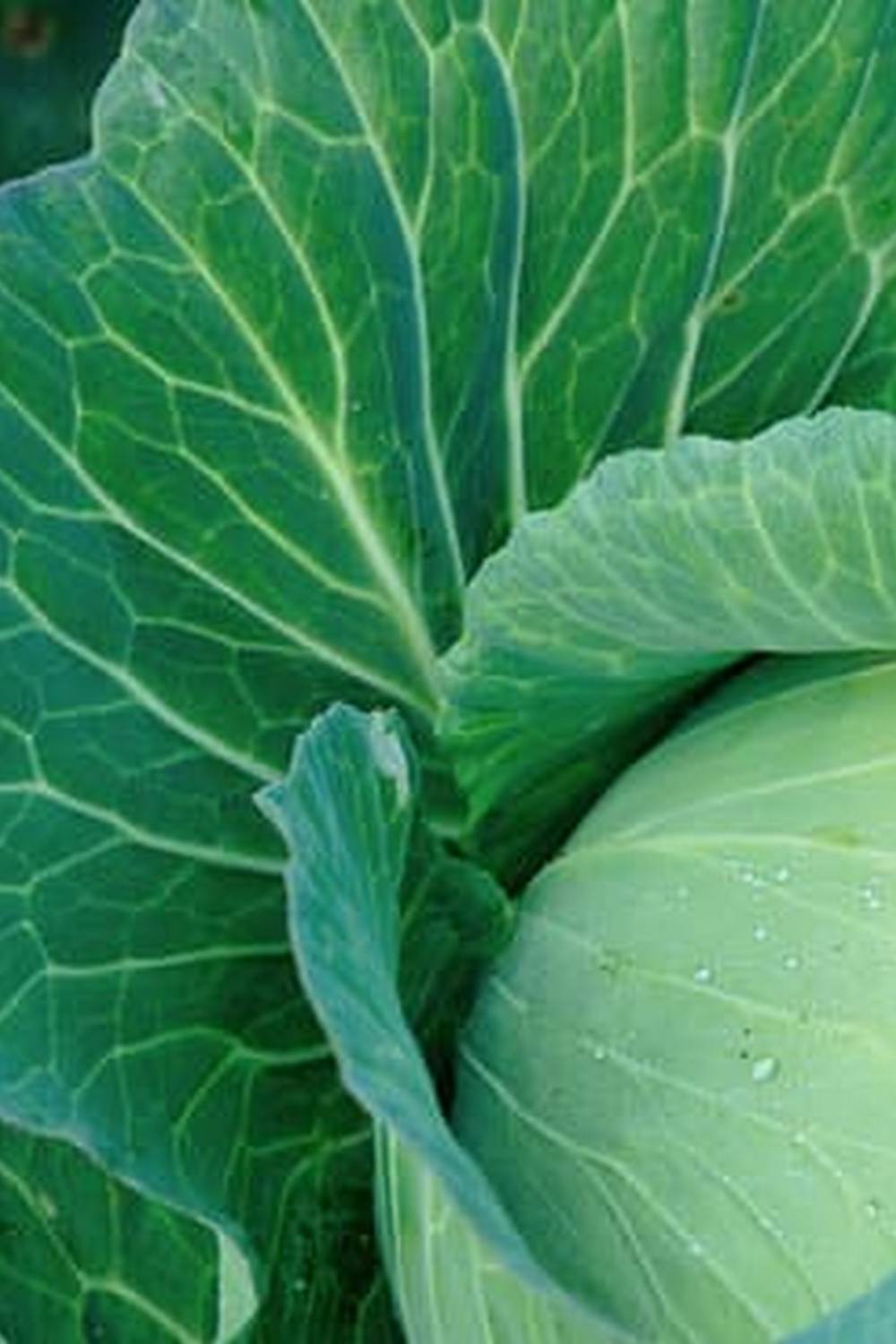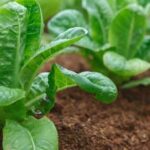Are you undecided whether to start your own garden or continue buying vegetables from the store? This article will explore the benefits of gardening versus purchasing vegetables. From cost comparison to quality and freshness, time and effort commitment, environmental impact, health benefits, and community aspects, we will delve into the various factors that can help you make an informed decision on how to source your vegetables.
Gardening vs buying vegetables: a common dilemma for many individuals looking to eat healthier and reduce their ecological footprint. When it comes to putting food on the table, there are several important factors to consider – from financial aspects to taste and nutrition. In this article, we will take a closer look at the pros and cons of both options so that you can make an informed decision on how best to get fresh produce into your diet.
As we dive into this exploration of gardening versus purchasing vegetables, we’ll examine the financial implications of both options as well as their impact on our health, environment, and society. Whether you’re considering starting your own vegetable patch or opting for the convenience of a grocery store or farmer’s market, understanding the benefits of each choice is crucial in making a decision that aligns with your lifestyle and values.
Cost Comparison
When it comes to deciding whether to grow your own vegetables or buy them from the store, cost is often a major factor in the decision-making process. Many people wonder if gardening is actually a cost-effective way to obtain fresh produce, especially when considering the initial investment of tools and supplies.
However, when analyzing the financial aspects of gardening versus buying vegetables, it is important to consider the long-term benefits and savings that come with growing your own produce.
At first glance, purchasing vegetables from the store may seem like the more affordable option compared to investing in seeds, soil, and gardening equipment. However, over time, the cost of regularly buying fresh produce can add up significantly.
On the other hand, once you have established a garden and acquired the necessary tools, you can continue to grow vegetables at a fraction of the cost throughout multiple growing seasons. In this way, gardening can ultimately result in substantial savings on grocery expenses.
Furthermore, by growing your own vegetables at home, you have greater control over your expenses and can potentially reduce your overall food costs. You can choose which vegetable varieties to grow based on your family’s preferences and prioritize organic or sustainable practices without having to pay a premium for these options at the supermarket.
In addition to saving money on groceries in the long run, gardening also provides a valuable opportunity for individuals or families to engage in a budget-friendly yet rewarding activity together while reaping the health benefits of fresh produce straight from their own backyard.
Therefore, when considering gardening vs buying vegetables purely from a financial perspective, it becomes evident that gardening offers an economically viable alternative for those looking to save money on their grocery bills while enjoying nutritious and delicious homegrown produce.
Quality and Freshness
When it comes to the quality and freshness of vegetables, there is a significant difference between gardening and buying them from the store. Growing your own vegetables allows you to have full control over the growing process, ensuring that you are getting the freshest and most nutritious produce possible. When you buy vegetables from the store, there is often no way of knowing how long they have been sitting on the shelf or where they came from.
Garden Fresh Taste
One of the most rewarding aspects of gardening is being able to enjoy the taste of freshly harvested vegetables. There is simply nothing quite like biting into a ripe tomato or crisp lettuce leaf that has just been picked from your own garden. The flavors of homegrown vegetables are often more vibrant and delicious compared to store-bought produce, as they are allowed to fully ripen on the vine before being consumed.
Nutritional Value
In terms of nutrition, homegrown vegetables are also superior to store-bought ones. Vegetables start to lose their nutritional value as soon as they are harvested, so having immediate access to freshly picked produce means that you are getting the maximum amount of vitamins, minerals, and antioxidants from your veggies. Additionally, when you grow your own vegetables, you can choose to use organic gardening methods and avoid harmful pesticides, which further enhances their nutritional value and overall health benefits.
Overall, when it comes to quality and freshness, gardening clearly comes out on top in comparison to buying vegetables. The ability to enjoy garden-fresh taste and maximize nutritional value makes gardening a compelling choice for those seeking top-quality produce.
Time and Effort
When it comes to the time and effort involved in gardening vs buying vegetables, there are several important factors to consider. Gardening requires a significant amount of time and effort, especially during the initial stages of preparing the soil, planting seeds, and tending to the plants as they grow. On the other hand, purchasing vegetables from a store or farmers market offers convenience and saves time that would otherwise be spent on maintaining a garden.
One key consideration is the level of commitment you are willing to dedicate to gardening. For those with busy schedules or limited outdoor space, gardening may not be a feasible option. However, for individuals who enjoy spending time outdoors and have the necessary resources, such as land, water access, and proper climate conditions for growing vegetables, gardening can be a rewarding and fulfilling activity.
In terms of physical exertion, gardening also requires manual labor such as digging, weeding, watering, and harvesting. This can be seen as both a benefit – providing exercise and fresh air – or a drawback for those with physical limitations or health concerns. Comparatively, buying vegetables involves less physical labor but may require more time spent shopping for produce and ensuring freshness at the point of purchase.
| Aspect | Gardening | Buying Vegetables |
|---|---|---|
| Time Commitment | Significant time required for planting, tending to plants, and harvesting | Less time spent on maintenance but more time on selecting and purchasing vegetables |
| Physical Exertion | Involves manual labor such as digging, weeding, watering | Limited physical labor but more time spent shopping for produce |
Environmental Impact
When it comes to the environmental impact of gardening versus buying vegetables, there are several factors to consider. One of the most significant benefits of gardening is the reduction of carbon footprint. When you grow your own vegetables, there is no need for transportation or refrigeration, which reduces greenhouse gas emissions. Additionally, homegrown produce usually requires fewer pesticides and chemicals compared to commercially grown vegetables, contributing to a healthier environment.
In contrast, buying vegetables from grocery stores often involves long-distance transportation, which adds to the carbon footprint. The packaging of store-bought vegetables also contributes to waste in landfills, whereas homegrown vegetables can be harvested and consumed without any packaging at all. By opting for a garden over store-bought produce, individuals can make a positive impact on the environment by reducing their carbon footprint and minimizing waste.
According to a study conducted by the National Gardening Association, an average gardening investment of $70 can yield $600 worth of produce. This cost comparison clearly shows that gardening can be a financially efficient way to procure fresh vegetables when compared to buying them from grocery stores.
However, it must be noted that gardening does require an initial investment in tools, seeds, and soil amendments in order to get started. Nonetheless, this investment ultimately pays off in terms of financial savings and environmental benefits.
| Comparison Factor | Gardening | Buying Vegetables |
|---|---|---|
| Carbon Footprint | Reduced due to minimal transportation and packaging | Higher due to long-distance transportation and packaging |
| Financial Aspect | Economical with an initial investment that yields significant savings | Potentially costlier over time with regular purchases |
Health Benefits
Physical Health Benefits
Gardening offers numerous physical health benefits. The activity itself provides a good workout, as it involves a range of movements such as digging, planting, weeding, and watering. These activities can contribute to improved stamina, strength, and flexibility. Additionally, the exposure to sunlight while gardening also enables the body to produce Vitamin D, which is essential for bone health and overall well-being.
Moreover, gardening can be an effective way to lower stress levels and reduce the risk of chronic disease. Research has shown that spending time outdoors and engaging in gardening activities can help lower cortisol levels – the hormone associated with stress. With lower stress levels comes a reduced risk of heart disease, obesity, diabetes, and other chronic conditions.
Mental Health Benefits
In addition to physical health benefits, gardening also provides numerous mental health advantages. Being surrounded by greenery and being involved in care for plants have been linked to reducing symptoms of anxiety and depression. In fact, studies have found that spending time in nature can significantly improve mood and increase feelings of happiness.
Furthermore, maintaining a garden can provide a sense of purpose and accomplishment. Witnessing the growth and development of plants can enhance self-esteem and boost confidence. Overall, gardening can act as a form of therapy and relaxation – providing individuals with an opportunity for mindfulness and connection with nature.
Overall, when it comes to comparing the health benefits between gardening vs buying vegetables from the store or market, it is clear that there are distinct advantages to gardening in terms of physical and mental well-being. While purchasing vegetables is convenient, engaging in regular gardening activities can contribute significantly to better overall health outcomes.
Community and Social Aspects
When it comes to the community and social aspects, gardening offers a unique opportunity for individuals to connect with their neighbors and local community. One of the most significant benefits of gardening is the sense of community it fosters. Whether it’s sharing tips with fellow gardeners, participating in community garden projects, or exchanging produce with neighbors, gardening brings people together and creates a sense of camaraderie.
Here are some ways in which gardening promotes community and social interaction:
- Community gardens: These shared spaces provide a platform for neighbors to come together, share resources, and collaborate on growing fruits and vegetables. It encourages teamwork and cooperation among community members.
- Educational opportunities: Gardening can also be used as a tool for education within the community. Local gardening clubs or workshops can be organized to teach people about sustainable practices, organic gardening methods, and food cultivation.
- Sharing surplus produce: An abundance of produce from a personal or community garden can be shared with others in the neighborhood, fostering a spirit of generosity and goodwill.
Furthermore, engaging in gardening activities can also have positive effects on mental well-being by providing a sense of purpose and accomplishment. As individuals tend to their gardens, they may find themselves forming bonds with fellow gardeners and developing a deeper connection to their local environment.
This social aspect of gardening adds an element of fulfillment that cannot be replicated by simply buying vegetables at the grocery store. Ultimately, gardening has the potential to bring people closer together and strengthen relationships within communities.
Additionally, participating in communal gardening projects can lead to increased social interactions within neighborhoods. This bonding experience not only promotes healthy relationships but also contributes to building a sense of belonging and unity within communities.
In contrast, purchasing vegetables from supermarkets may lack this social element that is inherent in the act of gardening alongside others. Thus, for those seeking a more socially enriching experience in their food-growing endeavors, gardening proves to be an excellent option compared to simply buying vegetables from stores.
Conclusion
In conclusion, the decision of whether to engage in gardening or to purchase vegetables ultimately depends on individual preferences, needs, and lifestyle. Both options have their own advantages and drawbacks, but it is important to carefully weigh the factors discussed in this article before making a decision.
Gardening provides the satisfaction of growing your own food, having control over the quality and freshness of the produce, and contributing to a more sustainable environment. On the other hand, buying vegetables offers convenience and saves time and effort that would otherwise be spent maintaining a garden.
When considering health benefits, gardening can provide physical exercise, stress relief, and access to fresh air and sunlight. Additionally, gardening can create social opportunities for community involvement and interaction with neighbors who share similar interests. However, for individuals with limited time or physical abilities, purchasing vegetables may be the more practical option.
Ultimately, whether one chooses gardening or buying vegetables as their primary source of produce comes down to personal priorities and resources. Some individuals may find fulfillment in tending to their own garden and reaping the rewards of their labor, while others may prefer the ease of simply purchasing what they need.
Whatever choice is made should align with an individual’s lifestyle goals and values when it comes to sustainability, health, convenience, cost-effectiveness – all factors that may guide one towards either direction.
Choosing between gardening vs buying vegetables is an individual decision but it’s clear that both have their unique merits – it just depends on what is most important to you.
Frequently Asked Questions
Are Garden Vegetables Better Than Store Bought?
Garden vegetables can be better than store-bought ones in terms of taste, freshness, and nutritional value. When you grow your own vegetables, you have more control over how they are grown.
Is Growing Vegetables Better Than Buying?
Growing vegetables at home can be a rewarding experience as it allows you to ensure the quality of the produce and reduces reliance on store-bought items. It also promotes sustainability and self-sufficiency.
Is It Better to Grow Your Own Vegetables?
Growing your own vegetables can be better for several reasons. It allows you to have access to fresh, organic produce, saves money in the long run, and gives you the satisfaction of being involved in the entire growing process from seed to harvest.

If you’re looking to get into vegetable gardening, or are just looking for some tips on how to make your current garden better, then you’ve come to the right place! My name is Ethel and I have been gardening for years. In this blog, I’m going to share with you some of my best tips on how to create a successful vegetable garden.





